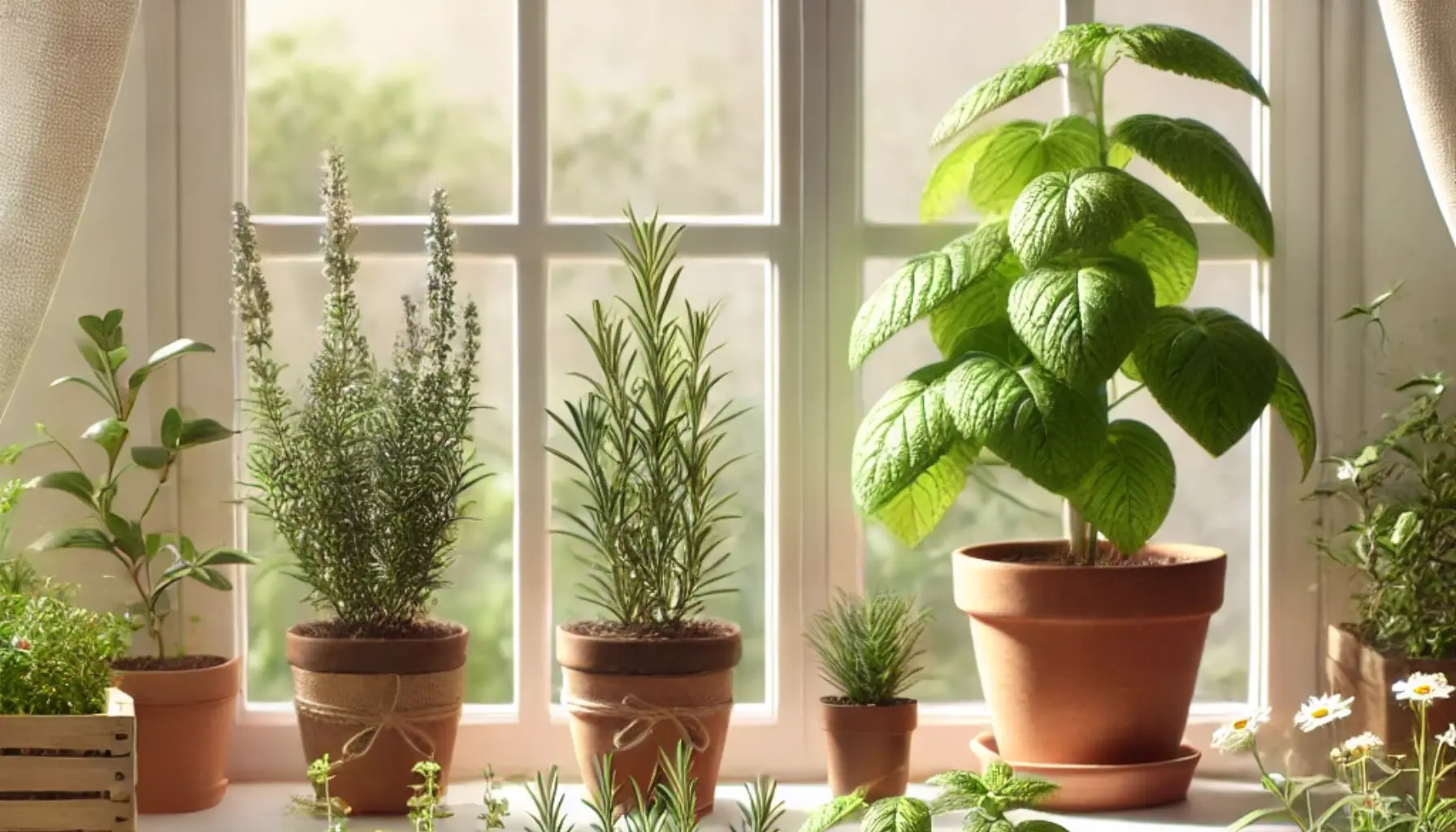Growing medicinal plants at home is a rewarding way to access fresh, natural remedies anytime you need them. Whether you want to soothe a headache with chamomile tea or add a touch of rosemary to your meals, these plants are versatile and easy to grow.
Herbs like rosemary, mint, and chamomile are not only medicinally beneficial but also enhance the ambiance of your home with their fragrances and greenery. Learning to cultivate and use them can improve your well-being and bring a sustainable touch to your routine.
This guide will teach you how to grow these plants and incorporate their benefits into your daily life.
Why Grow Medicinal Plants at Home?
Cultivating medicinal plants at home ensures a fresh and readily available source of natural remedies. You’ll save money by reducing your dependence on store-bought herbs and enjoy the satisfaction of growing your own.
These plants also contribute to a healthier environment. They purify the air, add a touch of greenery to your space, and connect you with nature, even in urban settings.
Additionally, the process of growing and tending to plants is therapeutic. It reduces stress and provides a sense of accomplishment, enhancing your overall mental health.
How to Start Growing Medicinal Plants
Starting a home herb garden is easier than you might think. Begin by choosing a location that gets plenty of sunlight, as most medicinal herbs thrive in bright conditions.
For small spaces, consider pots, hanging baskets, or vertical gardens. Ensure the containers have good drainage to prevent root rot.
Use nutrient-rich soil and organic compost to provide the plants with essential nutrients. Regularly check the moisture level of the soil and water appropriately. Most herbs prefer slightly moist but not soggy soil.
Rosemary: How to Grow and Its Medicinal Uses
Rosemary is a hardy and aromatic herb that’s perfect for both culinary and medicinal purposes. It thrives in sunny spots with well-drained soil and requires minimal watering.
Plant rosemary in a pot near a window or in your garden. If you live in a colder climate, bring it indoors during the winter. Prune it regularly to promote healthy growth and maintain its shape.
Medicinally, rosemary is known to improve memory, boost circulation, and reduce inflammation. Use it in teas to relieve headaches or add it to warm baths to relax sore muscles.
Mint: Freshness and Benefits at Your Fingertips
Mint is one of the easiest herbs to grow and is highly versatile. It grows well in partial shade and moist soil, making it suitable for both indoor and outdoor cultivation.
To plant mint, choose a large pot as it spreads quickly and can overtake other plants if not contained. Regularly trim the leaves to encourage new growth.
Mint is excellent for soothing digestive issues, refreshing the breath, and relieving headaches. Use it to make herbal teas, infuse water for a refreshing drink, or as a natural remedy for colds by inhaling its steam.
Chamomile: Delicacy and Calming Properties
Chamomile is a delicate herb with calming properties that has been used for centuries as a natural remedy. It thrives in well-drained soil and sunny locations.
To grow chamomile, start with seeds or seedlings. Keep the soil slightly moist during the germination process, and once established, water only when the top layer of soil feels dry.
Chamomile is best known for its soothing tea, which aids sleep, reduces anxiety, and relieves stomach discomfort. You can also use chamomile-infused water to calm skin irritations or as a gentle facial toner.
Tips for Keeping Your Medicinal Herb Garden Healthy
A healthy medicinal herb garden requires consistent but minimal care. Water your plants according to their individual needs, avoiding overwatering, which can lead to root rot.
Use organic fertilizers or compost to enrich the soil every few months. Prune your herbs regularly to encourage growth and prevent them from becoming woody or overgrown.
Watch for pests and diseases. Use natural remedies like neem oil or a mixture of water and soap to keep your plants pest-free without introducing harmful chemicals.
Creative Ways to Use Medicinal Plants Daily
Incorporating medicinal plants into your daily routine is easy and rewarding. Here are some ideas to make the most of your herbs:
- Teas and Infusions: Brew fresh rosemary, mint, or chamomile leaves for soothing drinks.
- Culinary Uses: Add rosemary and mint to enhance the flavor of dishes and drinks.
- Skincare: Use chamomile water as a natural toner or add rosemary oil to your bath.
- Natural Remedies: Create balms, poultices, or steam inhalations to relieve common ailments.
Experiment with different ways to incorporate these plants into your routine and discover their versatile benefits.
Bring Nature into Your Life with Medicinal Plants
Growing medicinal plants like rosemary, mint, and chamomile not only provides you with natural remedies but also enriches your living space with beauty and fragrance.
By following this guide, you can enjoy the therapeutic benefits of these plants while embracing a sustainable lifestyle. Start cultivating your herb garden today and transform your home into a haven of health and well-being.

